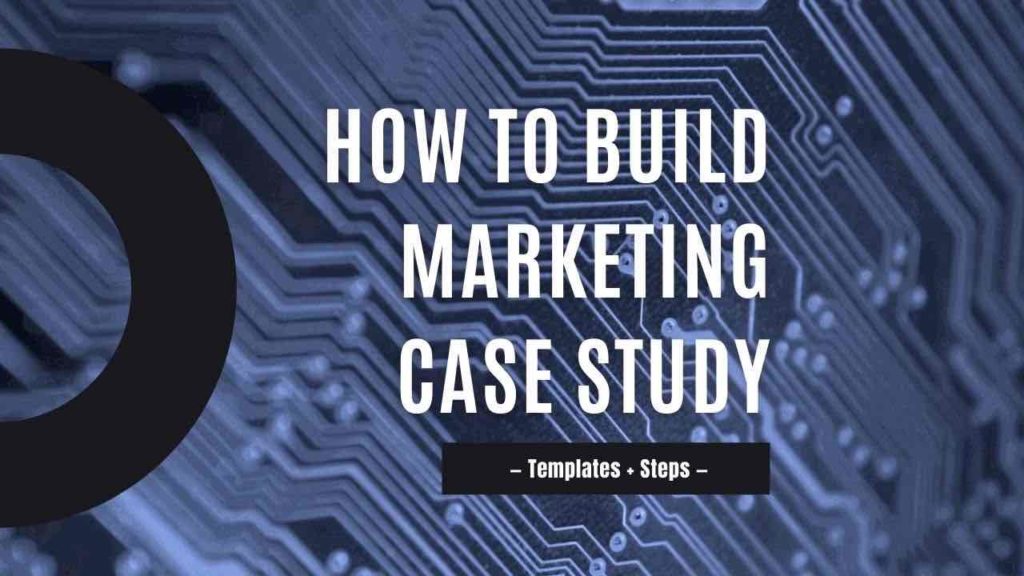Digital marketing is an interesting and lucrative career, and with more businesses embracing search optimization, paid advertisement, and social media for marketing, opportunities abound for digital marketers to thrive.
Anyone seeking to pursue a career in digital marketing will need to prepare for the task of helping clients from diverse industries reach more of their target audience, and increase sales. Startups hire marketers to help them amplify their message and make noticeable entry into markets, while established businesses look up to marketers to help them turn their figures around and maintain an upward growth trend.
Success in digital marketing requires both hard and soft skills, and while there is an opportunity to continue to learn and grow through on-the-job learnings, here are some skills to get started and help you thrive.
1. Deep Knowledge of Different Business and Client Types
A digital marketer needs to understand the products and services their clients are trying to sell, and the kinds of clients or customers they are trying to reach. Some businesses target other businesses (B2B), while some sell directly to consumers (B2C). Nonprofits are trying to reach their target audience and interest groups. Each of these business types has its unique approach when it comes to marketing.
For example, B2B marketing is more logical and process-driven, and sales often occur in the boardroom. B2C is more transactional, and purchasing decisions are usually emotional such that with a well-crafted landing page, sales can occur right on a webpage. However, nonprofits rely more on persuasion and connecting with people who have similar interests as the causes being promoted.
A B2B marketing strategy will require building more personal relationships and nurturing leads through the buying cycle. On the other hand, B2C marketing will require creating sensational campaigns that give consumers the need for a product. Marketing for Nonprofits will require identifying and targeting specific demographics that might have interest in such nonprofits.
2. Design and Branding
Creative abilities like design and branding skills are essential to a successful digital marketing career. From a survey by Edelman, 81% of consumers responded that they need to trust the brand before making any purchases. On the other hand, colour matters on brand recognition and using a signature colour can increase brand recognition by 80%.
Despite companies usually have roles responsible for design and branding jobs, a marketer still requires an appreciable knowledge in these areas. There is a need to understand basic design concepts and how to combine colors and visuals to create compelling designs that will appeal to your target audience.
Design tools like Photoshop, Illustrator, PicsArt, Fotor, Canva, Github, and others can help in your design skills. You can also learn video editing and animations as they can be useful to create engaging videos and animation to captivate your audience, give visual illustrations and communicate brand messages.
3. Content and Copywriting
You will need to hone your skills in content and copywriting. When you put up campaigns in search engines or social media, and direct people to your well-designed landing page, you’ll also need the right combination of words and phrases to keep users interested until they follow your calls-to-action (CTA).
Creating a masterpiece sales copy will require mastery of the sales language and the right use of words. While trying to emotionally appeal to your reader, you’ll also need to learn to present technical details in ways that will appeal to the audience. Besides, you will be communicating on behalf of different brands, therefore you need to understand clients’ needs, their target audience, and unique selling points to craft the attention-grabbing content.
The other aspect of writing that is essential is content marketing. This is a strategic creation of blog articles that provide educational information about topics relating to the products and services clients are promoting. Usually, it helps to attract organic traffic through SEO, guest posting, and link building.
4. Marketing Automation and Analytics
There is little you can do manually when you have to run multiple campaigns for different clients. However, learning how to use marketing automation platforms (MAPs) can help you handle such tasks easily. Besides, MAPs can help you become organized, and monitor your campaigns more proficiently.
Using marketing automation software and other analytics tools also make tracking campaign success much easier. Analytics is an indispensable skill in marketing but to make sense of analytics, understanding what data metrics are important to your campaign is essential. This is the only way you can generate actionable insight from data and you can easily connect marketing metrics to business goals and KPI.
Tools like Hubspot, Marketo, ActiveCampaign, Autopilot, and Google Analytics and more are great tools for marketing automation and analytics.
5. Organization and Project Management Skills
Your job as a digital marketer will involve working with numerous clients and working on several projects. You might also be working with different professionals and teams on the same project. Therefore, you need good project management skills to stay organized and meet up with work schedules.
Thankfully, there are several project management tools that you can use to track work progress and collaborate with other teams. Examples are Slack, Trello, Basecamp, Asana, Wrike, and others. Once you know how to use one or two of these software, you can easily work with others as well.
There are also productivity tools such as Evernote, Todoist, Otter, and others to stay organized. You will also need to know how to use co-working tools such a Google Docs, Spreadsheet, and their associated communication tools.
6. CRM and Database Management
The ability to target customers with great precision is essential to digital marketing. Customer relationship management (CRM) provides a solid backbone for marketing promotion and sales. CRMs are used to track users’ browsing history and preferences and offer a personalized and targeted approach to marketing. They are also useful for ad retargeting and prompt email communication. CRM can be integrated with marketing automation software and this can be useful in communicating the right information to each customer or client at the optimum rate and time.
Familiarity with CRM applications can help in the management of customer databases, as well as lead nurturing and management, marketing communications, and feedback gathering. Overall, a good CRM strategy can have a tremendous impact on sales. You will be able to improve on customer relationships and when customers are happy, your client’s business will grow.
7. SEO and SEM
Search Engine Optimization (SEO) and Search Engine Marketing (SEM) are essential to successful inbound marketing. SEO has to do with link building, keyword optimization, and ongoing creation of blog content based on what users are searching for. When rightfully implemented, they can help your clients achieve a higher domain authority in search engines and that results in a higher ranking in search result pages (SERPs).
There is also the technical aspect of SEO that involves good site architecture, the interconnectivity of webpages, page speed optimization, and ensuring a great user experience to increase conversion and reduce bounce rate. Search engine marketing on the other hand is a paid strategy that involves helping clients to bid for top positions in search results. SEM combines SEO strategies with Pay Per Click (PPC) strategy.
Success in SEM depends on two key factors; “Bidding” and “Quality Score.” The number one position in paid search goes to the highest bidder. A marketer needs to pay attention to Cost Per Click (CPC) when carrying out keyword research for SEM to bid accurately.
Quality Score is based on how ads resonate with search queries and user intent, and it is calculated based on click-through rate (CTR) and the quality of landing page. CTR can be boosted by improving ad copy and landing page. Therefore, a great quality score will earn you a discount on CPC.
A great SEM strategy lies in earning a great quality score to achieve top positions with reduced cost, thereby helping your clients to achieve great results with lower budgets.
8. Advanced Social Media Skills
Advanced social media skills involve researching where target audiences are, their interest, and the types of creative that will most appeal to them. It entails knowing how to create various forms of content, graphics, videos, and infographics that will delight the audience. It also involves knowing how to use social chatbots for customer relations and resolving queries on behalf of clients. You will also have to keep in touch with emerging trends on social media and understand the best practices.
Another advanced social media skill to learn is paid social media which involves ad targeting, placement, and retargeting. You need to learn how to create and optimize ads, monitor and alter bids, and every other thing associated with creating paid campaigns on social media.
9. Conversion Rate Optimization
As a digital marketer, one of your main assignments is to help your clients increase conversion on their webpage. Conversion rate optimization (CRO) deals with increasing the rate at which users perform specific actions on a webpage. Such actions might include clicking a link, filling out a form, adding a product to a cart, or purchasing a product.
Therefore, your efforts in CRO will be focused on understanding what drives people to your client’s website, the barriers that make them leave (or bounce), and what keeps them interested in the offer.
Some tools can help you access what is happening and why, and there are also tools for testing and measuring changes and performance. You will require skills in A/B testing, conversion funnels, and page element optimization, and navigation among others.
10. Strong Research Skills
You will need strong research skills to stay relevant in your career. Digital technologies keep evolving and you will need both qualitative and quantitative research skills to stay in the game as a marketer. As a professional, you should be able to identify looming challenges and uncover new opportunities. That will require resourcefulness, inquisitiveness, and curiosity on your part.
Conclusion
Digital marketing skills can be acquired both formally and informally, and some can be learned on the job. It can be effective to intern with a full-stack digital marketing agency so you can have some hands-on experience. You can also start your own website or blog and experiment with SEO, social media marketing, copy writing, branding and more. Therefore, whether you are building a fresh career in digital marketing or transiting into the career, combining upskilling through formal learning and getting your hands on practical experience will help you build your digital marketing confidence and skills.


